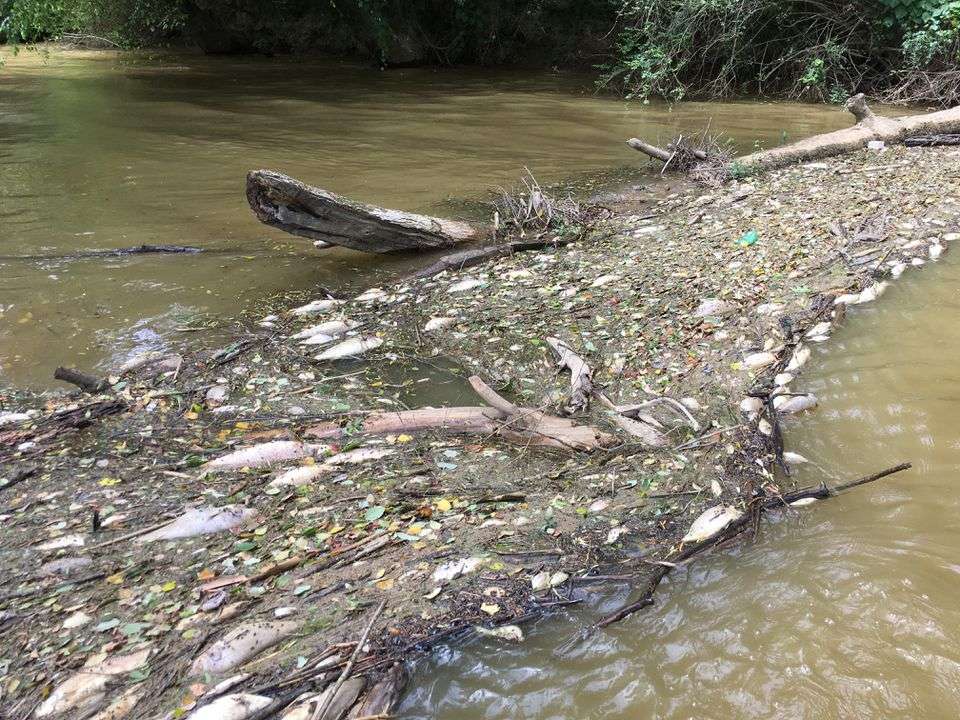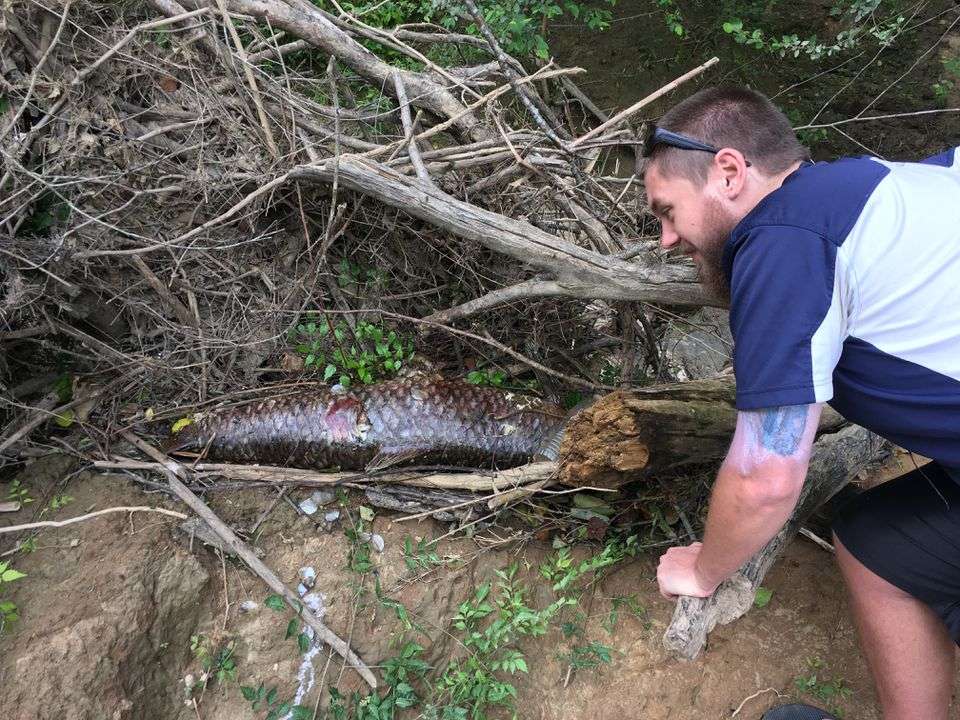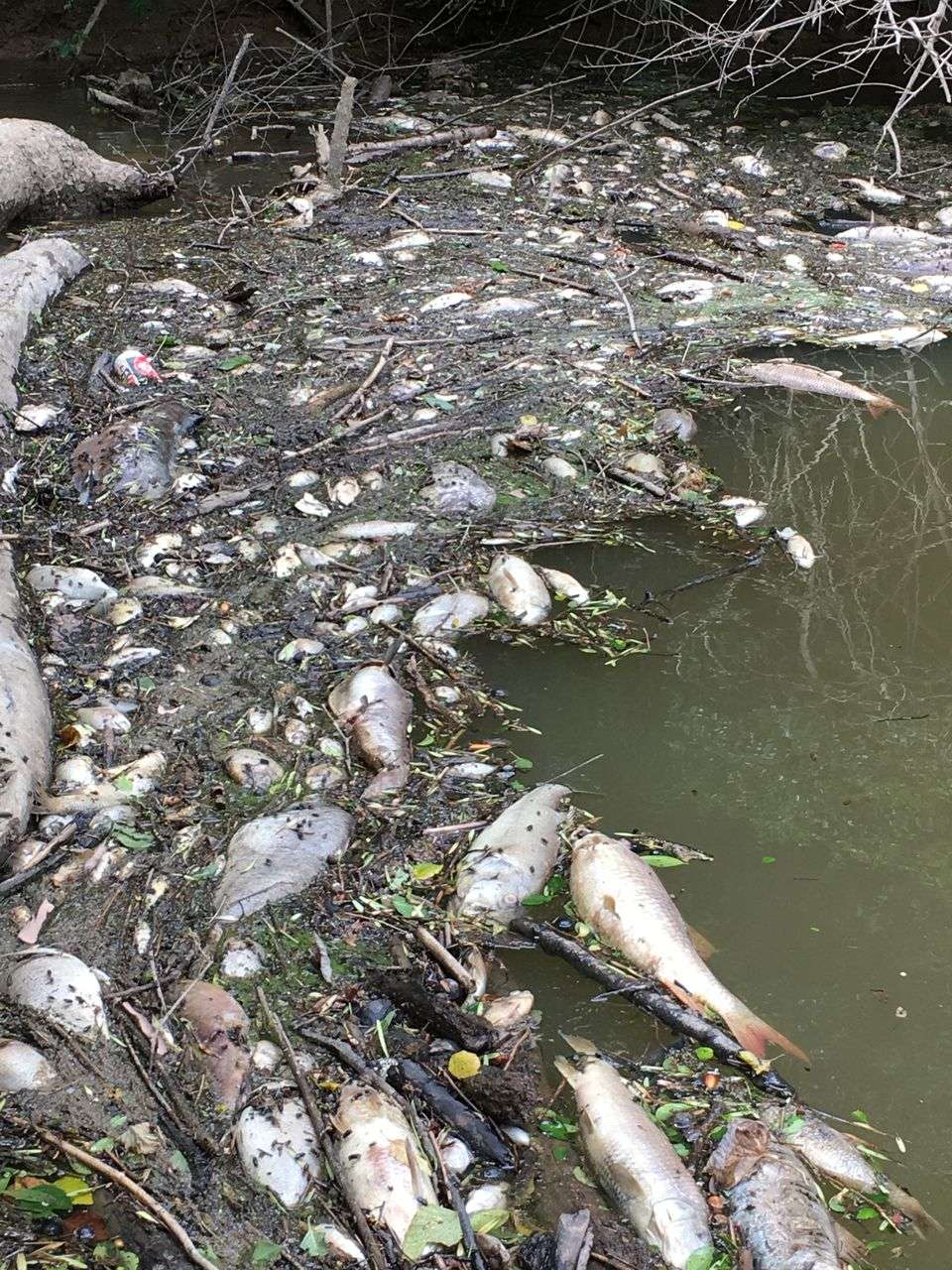
Earlier this month, a Tyson Foods plant in Hanceville, Alabama spilled over 800,000 gallons of wastewater into the Mulberry Fork of the Black Warrior River. Immediately after the spill, the Alabama Department of Conservation and Natural Resources estimated that nearly 175,000 fish were killed from low oxygen and nutrient pollution. And local conservationists had some startling findings of their own.
“This amount of E. coli was around 100 mL, which is double the maximum amount allowed by the state of Alabama in surface water during the summer of the recreational season” said Nelson Brooke, of Black Warrior Riverkeeper.
Hanceville is located 40 miles north of Birmingham and the Black Warrior river runs through two large Alabama cities (Birmingham and Jasper) who are both now fielding questions about the safety of their drinking water. As of June 25, the newest water quality tests have improved but Brooke said the waterways in Alabama are never “completely safe”.
“Our immediate concern for people fishing in the immediate aftermath of this massive fish kill was that we didn’t really know exactly what was spilled, how much or what the reach of it was,” Brooke said. It remains unclear what was released into the water, but Brooke said it is thought to be byproducts of chicken rendering.
The thing to keep in mind, said Brooke, is that the spill is not the only source of pollution and bacteria going in. There are dozens of agricultural farms, other industry and coal ash ponds lining the waterway. Brooke says that one sample may turn up clear — meaning the bad slough of water with all the dead fish has moved on — but it doesn’t mean the water is considered safe. “It adds up from all these sources day by day,” he said.
Tyson Foods released a statement to a local newspaper, The Cullman Times, saying they “deeply regret” what happened on the Mulberry Fork. The company went on to say that they “are working to make things right, and have an environmental contractor onsite and in the waterways, actively working on clean-up and the collection of fish impacted by this incident.”
Several Jasper residents and the local nonprofit Sipsey Heritage Commission have announced plans through their attorneys to file suit against Tyson Foods for injuries both to their health and to the river.
Another Tyson facility in the area, on the Locust Fork on the Black Warrior river in Blountsville, has a Clean Water Act permit up for public comment between now and July 12.
Brooke says the spill has been an eye opener for the general public and local communities about how fragile of a balance having clean water in Alabama.
Almost a month later, the spill has made its way more than 50 miles downstream and will pass outside of Birmingham and Tuscaloosa soon.






